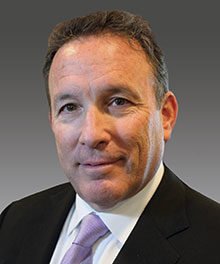Still on the Precipice

The eleventh hour deal struck by the White House and Congress on New Year’s Day to avert the fiscal cliff keeps the country from pitching into the abyss, at least for now, but leaves us gripping the edge with our toes.
The compromise provides for a mixed bag of new tax legislation, but postpones the hard decisions that still must be made on the debt ceiling, deficit reduction and federal spending cuts. Thus the real economic impact remains a great unknown.
The failure of our national leaders to resolve these big issues puts us in a position of untenable uncertainty – the most fragmenting and inefficient position to be in as a business manager.
Marcum is in the advisory business. Our clients look to us for guidance on tax and business strategy in order to plan their year and hopefully grow their businesses and their personal wealth. But the ominous economic issues still looming ahead make the job of advising our clients extremely difficult. As a result, in our annual Year-End Tax Guide for 2012 we could only lay out a variety of scenarios for clients to consider. In practical terms, consider is a far less useful guidepost than a definitive recommendation.
Early in the fourth quarter, when the prospect of the fiscal cliff began to rear its ugly head in earnest, Marcum got in front of the impending catastrophe by recommending that public companies accelerate their 2012 dividend payouts in order to give shareholders one last shot (potentially) at the 15% dividend tax rate. Jason Zweig of The Wall Street Journal picked up on this and eventually so did a lot of companies. Then we started talking to the Associated Press and others about the benefits of accelerating gifting before the expiration of the $5.1 million gift tax exemption.
Preemptive strikes like these were certainly beneficial in the absence of other choices, but they are a poor substitute for thoughtful, careful fiscal planning. Planning cannot be done in a vacuum. And without effective planning, both personal wealth and business prosperity are in jeopardy.
The fiscal cliff brinkmanship in Washington put us in this position. The partisan posturing was not in the country’s best interest. It was and is a disservice to our clients and to us.
I am not just an advisor to my clients. I am also a business owner with 1100 employees. Like my clients, I must make critical decisions for the health of my company and the benefit of my partners and my staff. We are all in the same boat, trying to navigate this rocky ride together.
We don’t yet know what the full impact of the fiscal cliff will ultimately prove to be. We do know, however, that uncertainty is not an optimal environment in which to conduct business. Let us hope that Washington’s New Year’s resolution is to put partisanship aside in order to chart a clear course to economic growth.
